People
John Landers, PhD Professor
 John Landers is an internaional leader in the field of ALS genetics research. He received his PhD in Molecular Biology from the University of Pennsylvania in 1995. Dr. Landers was then a post-doctoral fellow in Genetics at the Massachusetts Institute of Technology, before receiving an NIH training grant from the Massachusetts Institute of Technology in Genetics. He was a Chief Scientific Officer at PolyGenyx Inc. from 1999 to 2005. Dr. Landers taught neurology at Mass General Hospital and Harvard Medical School until 2008, when he began as an Associate Professor of Neurology at UMass Chan Medical School.
John Landers is an internaional leader in the field of ALS genetics research. He received his PhD in Molecular Biology from the University of Pennsylvania in 1995. Dr. Landers was then a post-doctoral fellow in Genetics at the Massachusetts Institute of Technology, before receiving an NIH training grant from the Massachusetts Institute of Technology in Genetics. He was a Chief Scientific Officer at PolyGenyx Inc. from 1999 to 2005. Dr. Landers taught neurology at Mass General Hospital and Harvard Medical School until 2008, when he began as an Associate Professor of Neurology at UMass Chan Medical School.
His career has mainly focused on using new and high-throughput technologies for the identification of neurodegenerative disease genes with a strong focus on ALS and FTD. Through his efforts, the Landers Lab has developed extensive collaborations with the leaders of ALS and FTD genetic research. The Landers Lab was a major contributor to the identification of the FUS gene mutation as a significant percentage of familial ALS cases. Through a long-standing interest of novel technologies, his lab is focused on using next-generation sequencing approaches to identify additional genes contributing to ALS and FTD. This includes using whole-genome sequencing, RNA-Seq and exome capture/sequencing. This effort has led to the identification of PFN1 mutations in familial ALS. More recently, the lab has focused on using rare variant analysis of exome sequencing results to identify novel causative genes for ALS and FTD. Through this effort, we have shown that mutations in the TUBA4A gene. Further optimization of the rare variant approach through the use of a training set led to the discovery of NEK1 and recently KIF5A, as ALS and FTD associated genes. A similar approach is being used to identify genes contributing to Parkinson's disease. Dr. Landers is also the Research Leader of Project MinE USA, part of an international consortium of 16 countries to whole genome sequence 22,500 samples to identify novel genes contributing to ALS.
Shankaracharya, PhD Bioinformatician III
 Dr. Shankaracharya is a researcher and a well-published author in the various domains of Bioinformatics ranging from molecular modeling and drug design to next generation sequencing analysis. He has done his PhD in Technology on "Development of an intelligent system for early detection of diabetes risk in Indian population and evaluation of its performance". He is a trained Biotechnologist and a Bioinformatician with very vast experience. He has been involved in developing Bioinformatics Pipelines, Databases, Applications and Software.
Dr. Shankaracharya is a researcher and a well-published author in the various domains of Bioinformatics ranging from molecular modeling and drug design to next generation sequencing analysis. He has done his PhD in Technology on "Development of an intelligent system for early detection of diabetes risk in Indian population and evaluation of its performance". He is a trained Biotechnologist and a Bioinformatician with very vast experience. He has been involved in developing Bioinformatics Pipelines, Databases, Applications and Software.
Dr. Shankaracharya is currently involved with the development of applications and pipelines for Next Generation Sequence data analysis of whole genome and whole exome DNA sequences. He is also involved in the development of pipelines for bulk and single cell RNA sequences for various neurodegenerative diseases. He has completed his Post Doctorate research at The Epidemiology Department, The University of Texas, MD Anderson Cancer Center, Houston, Texas and at The Department of Neurology, UMass Chan Medical School. At the University of Texas, he developed the application for disease risk prediction modeling using classification and regression-based machine-learning methods that can be applied for the prediction of relative and absolute disease risk using various epidemiological and genetic data for various diseases. He has authored more than 30 publications in the journal of International repute. He is serving as reviewer and editorial board member of many reputed international journals. At present, he is working as Bioinformatician III at UMass Chan Medical School, Worcester, Massachusetts, US.
Publications:
- Dobson-Stone et al.,CYLD is a causative gene for frontotemporal dementia – amyotrophic lateral sclerosis. Brain, 143(3): 783–799 (2020); https://doi.org/10.1093/brain/awaa039
- Nicolas et al., Genome-wide Analyses Identify KIF5A as a Novel ALS Gene. Neuron. 2018 Mar 21;97(6):1268-1283.e6. doi: 10.1016/j.neuron.2018.02.027.
- Hu H, Roach JC, Coon H, Guthery SL, Voelkerding KV, Margraf RL, Durtschi JD, Tavtigian SV, Shankaracharya,Wu W, Scheet P, Wang S, Xing J, Glusman G, Hubley R, Li H, Garg V, Moore B, Hood L, Galas DJ, Srivastava D, Reese MG, Jorde LB, Yandell M & Huff CD. A unified test of linkage analysis and rare-variant association for robust analysis of sequenced pedigrees. Nature Biotechnology. 32:663–669 (2014); doi: 10.1038/nbt.2895
- Li H, Glusman G, Hu H, Shankaracharya, Caballero J, Hubley R, Witherspoon D, Guthery SL, Mauldin DE, Jorde LB, Hood L, Roach JC, Huff CD (2014): Relationship Estimation from Whole-Genome Sequence Data. PLoS Genet, 10(1): e1004144. doi: 10.1371/journal.pgen.1004144.
- Shankaracharya, Odedra D, Samanta S and Vidyarthi AS (2010) Computational Intelligence in Early Diabetes Diagnosis: A Review. Rev Diabet Stud, 7(4):252-262 doi: 10.1900/RDS.2010.7.252
Anthony Giampetruzzi, PhD Instructor
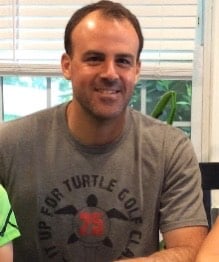 Anthony Giampetruzzi graduated from Clark University in Worcester, Massachusetts in 2003 with a Bachelor of Arts in Biology and 2004 with a Master of Arts in Teaching. He worked as a high school science teacher until 2009. He then received his Ph.D. in Biomedical Science from the University of Connecticut Health Center in 2013. Dr. Giampetruzzi worked as a post-doctoral fellow in the lab of John Landers at UMass Chan Medical School. He was then awarded an ALS Association Milton Safenowitz Post-Doctoral Fellowship. Dr. Giampetruzzi currently works as an instructor in the Landers Lab where he is investigating toxicity caused by ALS mutants and working to identify possible therapeutics in ALS.
Anthony Giampetruzzi graduated from Clark University in Worcester, Massachusetts in 2003 with a Bachelor of Arts in Biology and 2004 with a Master of Arts in Teaching. He worked as a high school science teacher until 2009. He then received his Ph.D. in Biomedical Science from the University of Connecticut Health Center in 2013. Dr. Giampetruzzi worked as a post-doctoral fellow in the lab of John Landers at UMass Chan Medical School. He was then awarded an ALS Association Milton Safenowitz Post-Doctoral Fellowship. Dr. Giampetruzzi currently works as an instructor in the Landers Lab where he is investigating toxicity caused by ALS mutants and working to identify possible therapeutics in ALS.
Publications:
- Giampetruzzi, E. Danielson, M. Jeon, V. Gumina, S. Boopathy, R.H. Brown Jr., J.E. Landers, C. Fallini. Modulation of actin polymerization affects nucleocytoplasmic transport in multiple forms of ALS. Nature Communications, 3827 (10). https://doi.org/10.1038/s41467-019-11837-y
- Wu CH, Giampetruzzi A, Tran H, Fallini C, Gao F, Landers JE.(2017). A Drosophila model of ALS reveals a partial loss of function of causative human PFN1 mutants. Human Molecular Genetics. 26(11), 2146-2155. https://doi.org/10.1093/hmg/ddx112
- Giampetruzzi, A., Carson, J. H., & Barbarese, E. (2013). FMRP and myelin protein expression in oligodendrocytes. Molecular and Cellular Neurosciences, 56, 333–341. https://doi.org/10.1016/j.mcn.2013.07.009
- Claycomb KI., Winokur PN, Johnson KM, Nicaise AM, Giampetruzzi AW, Sacino AV, Synder EY, Barbarese E, Bongarzone ER, Crocker SJ. (2014). Aberrant production of tenascin-C in globoid cell leukodystrophy alters psychosine-induced microglial functions. Journal of Neuropathology and Experimental Neurology, 73(10),964–974. https://doi.org/10.1097/NEN.0000000000000117
- Barbarese E, Ifrim MF, Hsieh L, Guo C, Tatavarty V, Maggipinto, MJ, Korza G, Tutolo JW, Giampetruzzi A, Le H, Ma XM, Levine E, Bishop B, Kim DO, Kuwada S, Carson JH. (2013). Conditional knockout of tumor overexpressed gene in mouse neurons affects RNA granule assembly, granule translation, LTP and short term habituation. PloS One, 8(8), e69989. https://doi.org/10.1371/journal.pone.0069989
Desiree Baron, PhD Research Associate II
Desiree Baron received her Ph.D. in Microbiology, Immunology, and Molecular Genetics in 2007 from UC Los Angeles working in the laboratory of Dr. Kent Hill. There she studied factors important for motility and pathogenesis in the protozoan parasite responsible for causing African Sleeping Sickness, Trypanosoma brucei. From 2007-2011, Dr. Baron was a post-doctoral fellow in the lab of Stephen Doxsey at UMass Chan Medical School, investigating the link between cancer tumorigenesis and stem cells. Prior to joining the Landers lab in 2018, Dr. Baron served as a Research Associate II and Lab manager in the laboratory of Dr. Daryl Bosco at UMass Chan Medical School, where she studied the effect of different stressors on the ALS-associated RNA-binding protein, FUS. In the Landers lab she is currently trying to identify genes that modify ALS pathogenesis and working with IPS derived motor neurons.
Publications:
- The RNA-binding protein FUS/TLS undergoes calcium-mediated nuclear egress during excitotoxic stress and is required for GRIA2 mRNA processing. Tischbein M, Baron DM, Lin YC, Gall KV, Landers JE, Fallini C, Bosco DA. J Biol Chem. 2019 Jun 28;294(26):10194-10210. doi: 10.1074/jbc.RA118.005933. Epub 2019 May 15. PMID: 31092554
- Quantitative proteomics identifies proteins that resist translational repression and become dysregulated in ALS-FUS. Baron DM, Matheny T, Lin YC, Leszyk JD, Kenna K, Gall KV, Santos DP, Tischbein M, Funes S, Hayward LJ, Kiskinis E, Landers JE, Parker R, Shaffer SA, Bosco DA. Hum Mol Genet. 2019 Jul 1;28(13):2143-2160. doi: 10.1093/hmg/ddz048. PMID: 30806671
- Mutations in the profilin 1 gene cause familial amyotrophic lateral sclerosis. Wu CH, Fallini C, Ticozzi N, Keagle PJ, Sapp PC, Piotrowska K, Lowe P, Koppers M, McKenna-Yasek D, Baron DM, Kost JE, Gonzalez-Perez P, Fox AD, Adams J, Taroni F, Tiloca C, Leclerc AL, Chafe SC, Mangroo D, Moore MJ, Zitzewitz JA, Xu ZS, van den Berg LH, Glass JD, Siciliano G, Cirulli ET, Goldstein DB, Salachas F, Meininger V, Rossoll W, Ratti A, Gellera C, Bosco DA, Bassell GJ, Silani V, Drory VE, Brown RH Jr, Landers JE. Nature. 2012 Aug 23;488(7412):499-503. doi: 10.1038/nature11280. PMID: 22801503
- Amyotrophic lateral sclerosis-linked FUS/TLS alters stress granule assembly and dynamics. Baron DM, Kaushansky LJ, Ward CL, Sama RR, Chian RJ, Boggio KJ, Quaresma AJ, Nickerson JA, Bosco DA. Mol Neurodegener. 2013 Aug 31;8:30. doi: 10.1186/1750-1326-8-30. PMID: 24090136
Pamela Keagle Data Analyst, Lab Manager
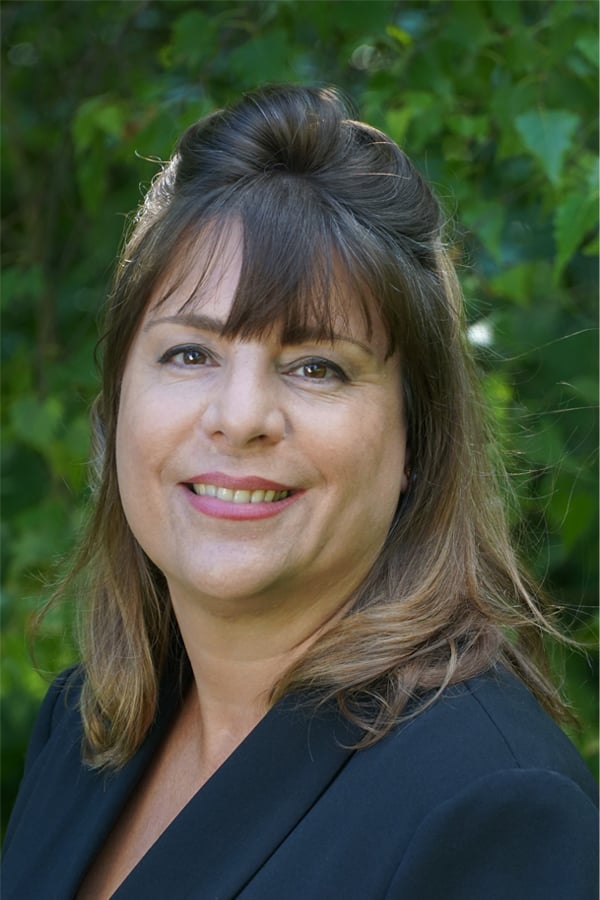 Pamela Keagle graduated from Worcester Polytechnic Institute in Worcester, Massachusetts in 1994 with a B.S. in Biology/Biotechnology. She worked in the Biotechnology and Pharmaceutical Industry from 1994-2001. After spending several years raising a family, she returned to academic research and joined John Landers lab in 2008 as a research technician studying ALS. Her current role is as Lab Manager and Data Analyst in the Bioinformatics team.
Pamela Keagle graduated from Worcester Polytechnic Institute in Worcester, Massachusetts in 1994 with a B.S. in Biology/Biotechnology. She worked in the Biotechnology and Pharmaceutical Industry from 1994-2001. After spending several years raising a family, she returned to academic research and joined John Landers lab in 2008 as a research technician studying ALS. Her current role is as Lab Manager and Data Analyst in the Bioinformatics team.
Debra Cameron Research Associate I
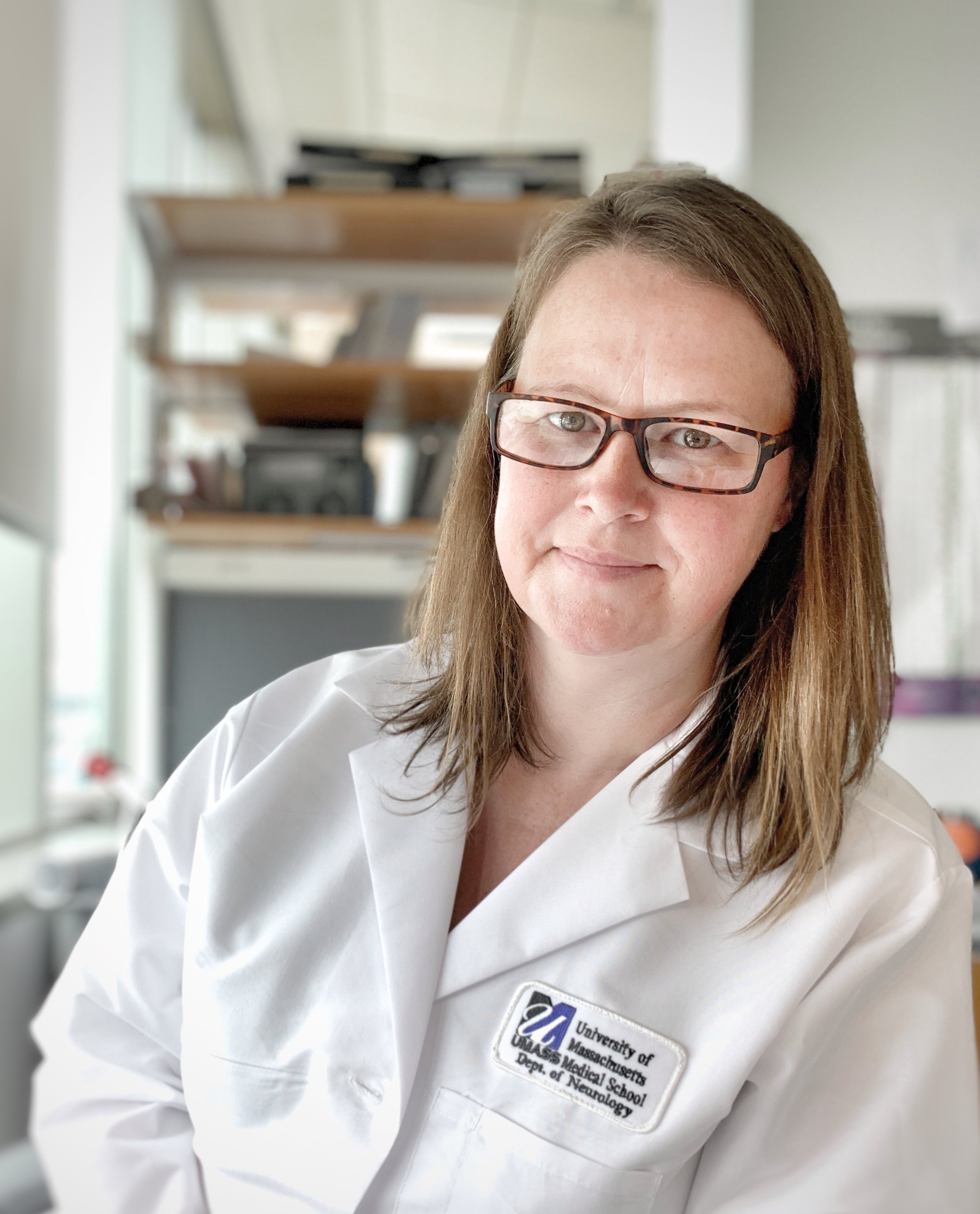 Debra Cameron graduated from the University of Alaska with a BS in Biological Sciences. She brings over 10 years of experience in cellular & molecular biology with a background in both biotechnology and academic research in the areas of transplant immunology, cervical cancer, and neuromuscular diseases. She worked as a Research Associate in the UMASS Neurology department from 2009-2012 before moving out of state, and joined the Landers Lab in 2018 after returning to MA.
Debra Cameron graduated from the University of Alaska with a BS in Biological Sciences. She brings over 10 years of experience in cellular & molecular biology with a background in both biotechnology and academic research in the areas of transplant immunology, cervical cancer, and neuromuscular diseases. She worked as a Research Associate in the UMASS Neurology department from 2009-2012 before moving out of state, and joined the Landers Lab in 2018 after returning to MA.
Joris Cipi Research Associate I
In 2017 Joris Cipi graduated from Clark University with a Bachelor of Arts degree in chemistry. That same year he started at the Punzo lab where he worked for two years on various projects related to retinitis pigmentosa and age-related macular degeneration. In 2019, he joined the Landers lab where he is currently working on the development of novel therapeutic strategies for diseases of the central nervous system. His main project is on amyotrophic lateral sclerosis (ALS) and focuses on toxic mutations found in the NEK1 gene that cause ALS pathology.
Victoria Donroe Research Associate
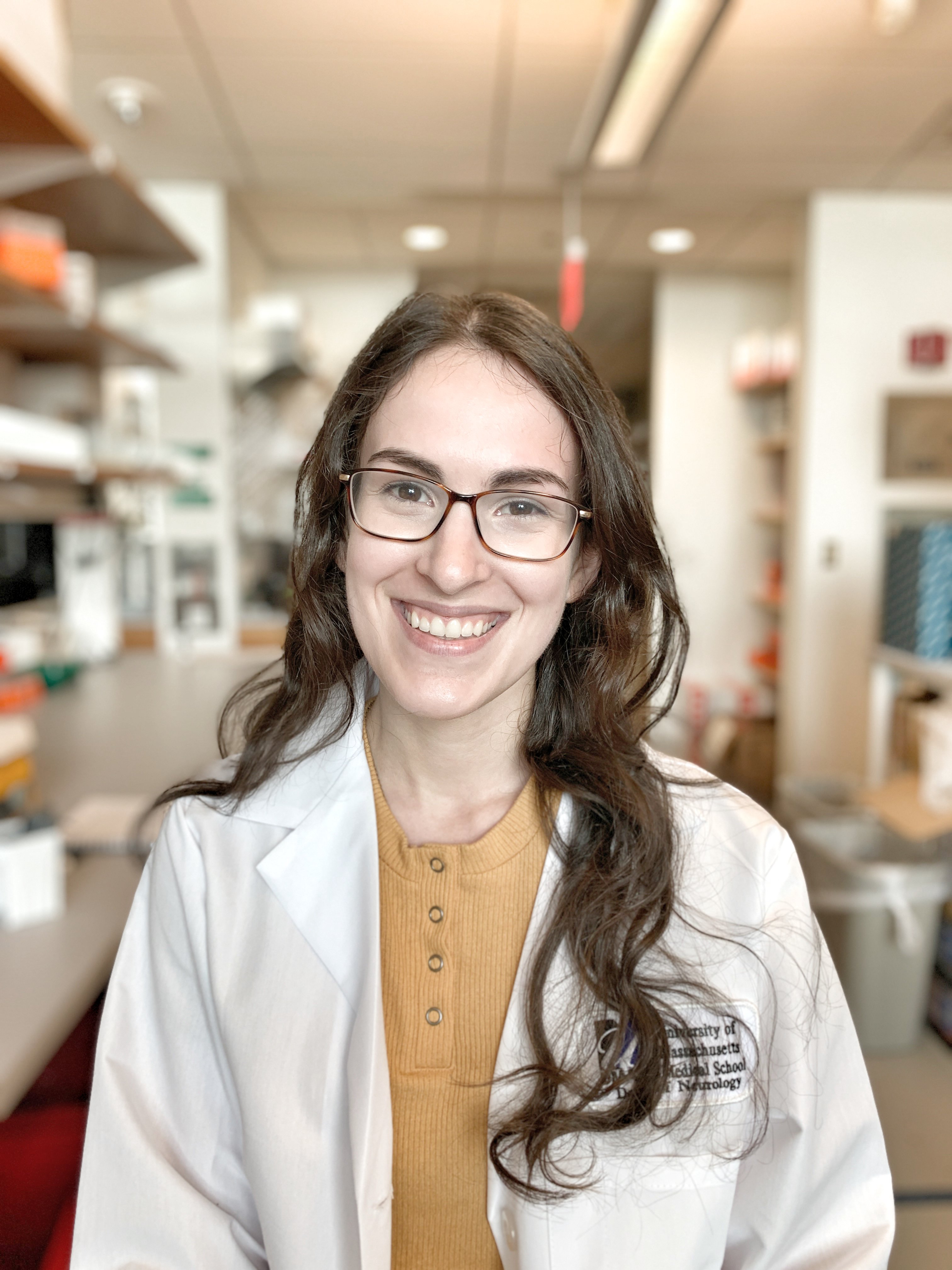 Victoria Donroe has always been passionate about science and roles animals can play in research discoveries. This led her to get her Bachelor's degree in Animal Science with a concentration in Pathobiology from the University of Connecticut. After graduating in 2018, she took a position with the Animal Medicine department at UMass Chan Medical School where she was in charge of the day-to-day animal husbandry and care for the mouse colonies of several labs. In 2019, she transitioned into the Landers lab where she is responsible for maintaining the lab's transgenic and non-transgenic mouse colonies and carrying out experiments related to mouse samples. The projects she is currently involved with include investigating the ALS gene NEK1 and studying potential ALS therapeutics.
Victoria Donroe has always been passionate about science and roles animals can play in research discoveries. This led her to get her Bachelor's degree in Animal Science with a concentration in Pathobiology from the University of Connecticut. After graduating in 2018, she took a position with the Animal Medicine department at UMass Chan Medical School where she was in charge of the day-to-day animal husbandry and care for the mouse colonies of several labs. In 2019, she transitioned into the Landers lab where she is responsible for maintaining the lab's transgenic and non-transgenic mouse colonies and carrying out experiments related to mouse samples. The projects she is currently involved with include investigating the ALS gene NEK1 and studying potential ALS therapeutics.
Aparna Sreeram Graduate Student
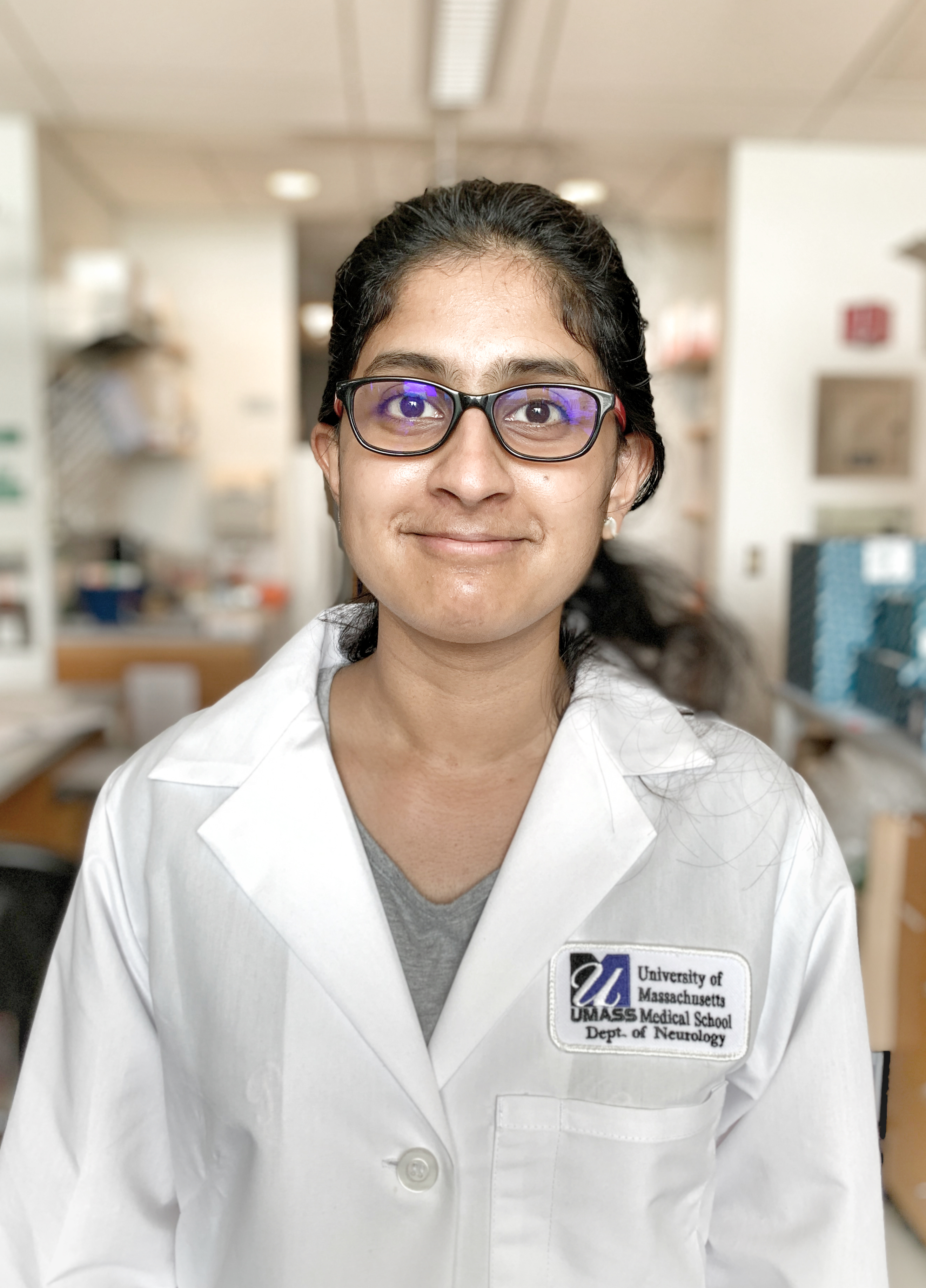 Aparna Sreeram is a graduate student in the Morningside Graduate School of Biomedical Sciences program at UMass Chan Medical School. She obtained her undergraduate degree in biotechnology from SASTRA UNIVERSITY, India in 2017 and then went on to get her Master’s degree in Cell and Molecular biology from Boston University in 2019. She is interested in studying molecular and genetic causes of ALS and other neurodegenerative disorders and exploring possible therapeutics for the same.
Aparna Sreeram is a graduate student in the Morningside Graduate School of Biomedical Sciences program at UMass Chan Medical School. She obtained her undergraduate degree in biotechnology from SASTRA UNIVERSITY, India in 2017 and then went on to get her Master’s degree in Cell and Molecular biology from Boston University in 2019. She is interested in studying molecular and genetic causes of ALS and other neurodegenerative disorders and exploring possible therapeutics for the same.
Eleni Kovatsis Medical Student
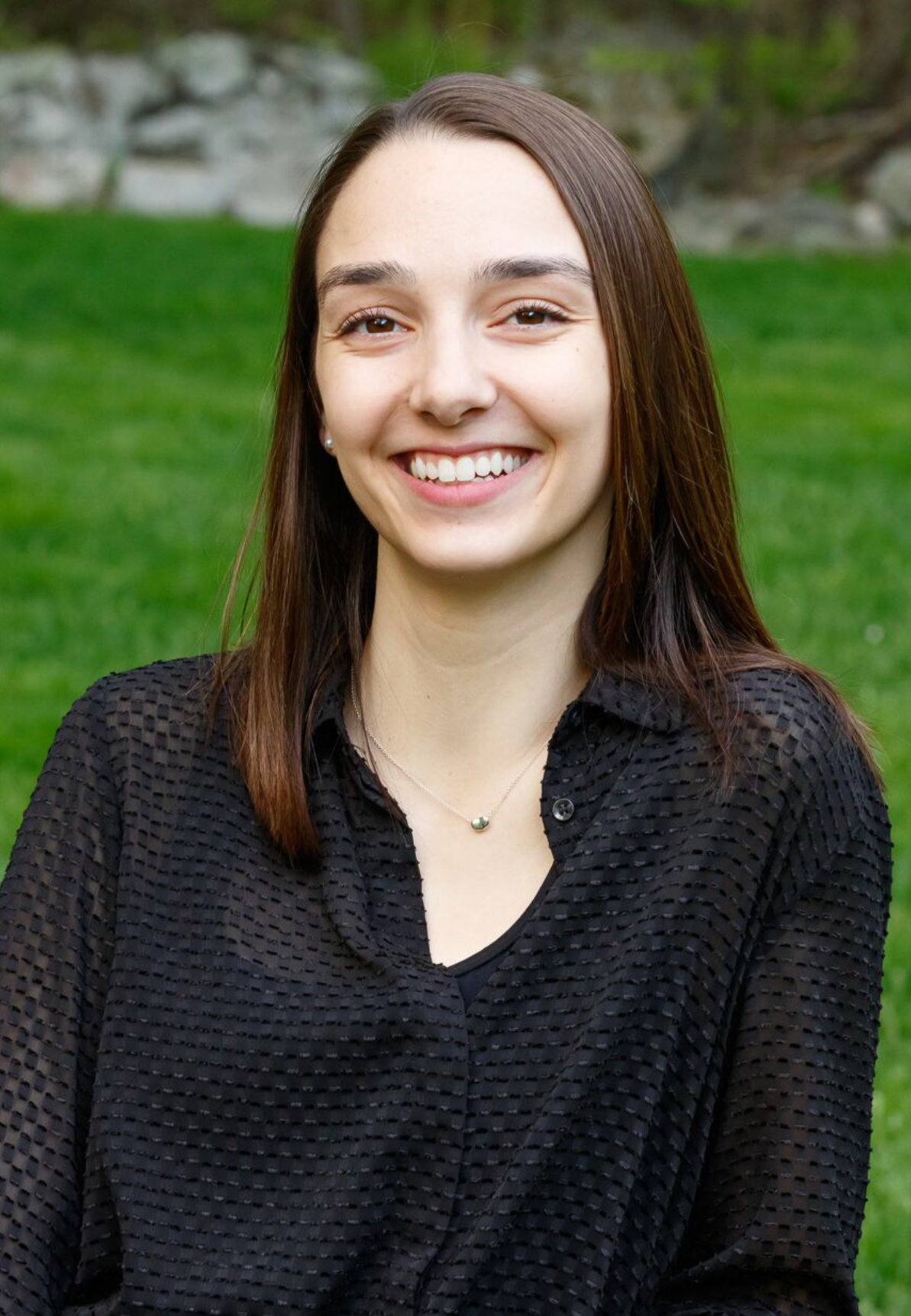 Eleni Kovatsis graduated from Harvard University in 2017 where she majored in neurobiology. She worked as a research assistant in the Ginty Lab at Harvard Medical School, studying the neurobiology behind our sense of touch. She joined UMass as a medical student in the class of 2023, and is excited to work in the lab and assist on various ongoing projects.
Eleni Kovatsis graduated from Harvard University in 2017 where she majored in neurobiology. She worked as a research assistant in the Ginty Lab at Harvard Medical School, studying the neurobiology behind our sense of touch. She joined UMass as a medical student in the class of 2023, and is excited to work in the lab and assist on various ongoing projects.
Pierce Gillam Undergraduate
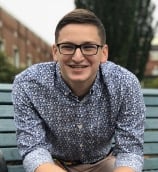 Pierce Gillim is an undergraduate intern in the Landers Lab. He is currently studying Bioinformatics at Wheaton College Massachusetts. He has been working as part of the bioinformatics team since 2019.
Pierce Gillim is an undergraduate intern in the Landers Lab. He is currently studying Bioinformatics at Wheaton College Massachusetts. He has been working as part of the bioinformatics team since 2019.
Mariana Torres Undergraduate
Originally from Puerto Rico, Mariana Torres is currently an undergraduate student at Clark University studying Biology with a minor in Chemistry and a concentration in Health, Science and Society. Since first joining the Landers Lab during her sophomore year, she has assisted Dr. Giampetruzzi in a variety of ongoing projects. Her responsibilities range from cell line maintenance, fluorescence imaging, and other biochemical assays.
